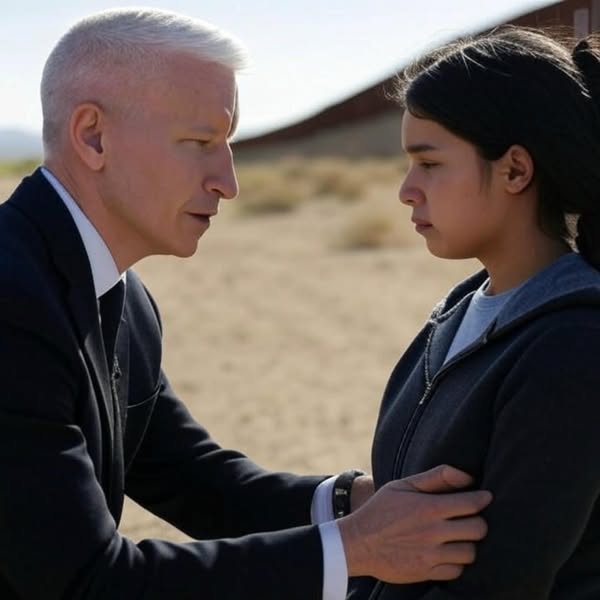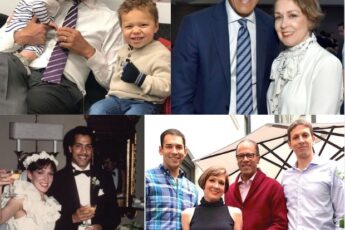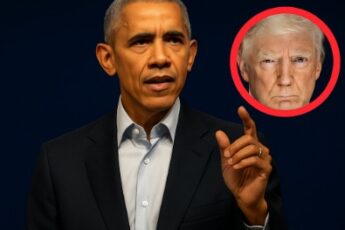Anderson Cooper Prioritizes Witness Safety Over Sensationalism in Border Trafficking Exposé
When CNN’s Anderson Cooper set out to investigate human trafficking along the U.S.-Mexico border, he didn’t expect that the most defining choice of the report wouldn’t involve a camera angle or a headline—but an act of protection.
During the production of a powerful investigative piece on the dark underbelly of human trafficking routes near the southern border, Cooper and his team made a deliberate, ethical decision: to shield the identity of a key witness, a young woman who had just escaped captivity. This choice, though it reduced the visual drama of the final segment, demonstrated a profound commitment to journalistic ethics and human dignity.
A Brave Survivor Steps Forward
The woman, whose name and background were kept confidential, had recently fled from a trafficking network that operated across the border. Her story was harrowing—detailing manipulation, violence, and a narrow escape. She agreed to speak on camera, not for fame or sympathy, but with the hope that her experience might protect others from a similar fate.
However, as the interview concluded, it became clear she was terrified. The traffickers, she believed, were still looking for her. If her identity were revealed, she feared violent retribution—not only against her, but potentially against family members who remained in Mexico.
A Tough Editorial Call
Back at CNN’s field office, the production team faced a critical choice. Including the woman’s face and voice would have added raw emotion and dramatic intensity to the piece—elements that often drive higher viewership. But Cooper, known for his deep sense of responsibility to his sources, rejected the idea outright.
Instead, the team employed voice modulation technology, obscured her face entirely on screen, and carefully scrubbed any identifiable personal details from the footage.
The decision was not without pushback. Some executives raised concerns about losing impact. But Cooper held firm, reminding everyone involved that the first duty of journalism is to do no harm.
Behind the Scenes Protection Efforts

Beyond technical edits, Cooper went further. After filming, he contacted authorities in both the U.S. and Mexico, working directly with non-governmental organizations and law enforcement to ensure the woman was placed in a witness protection program.
He personally liaised with a border protection liaison and a human rights attorney to guarantee that the woman would receive not only physical protection, but also psychological counseling and assistance with relocation.
CNN confirmed that no details about the woman’s real identity were ever stored beyond the encrypted footage vault—ensuring her safety even in the event of a digital breach.
Journalism with a Human Conscience
The segment aired two weeks later under the title “No Way Out: The Hidden Toll of Border Trafficking.” Though stripped of the sensational visuals often associated with similar reports, the piece delivered a haunting, intimate portrait of human exploitation and the mechanisms that allow it to persist.
The report sparked significant attention. Advocacy groups praised it for exposing the scope and brutality of trafficking operations along the southern corridor. Viewers responded with outrage—and donations—to organizations assisting survivors.
But perhaps most striking was the praise from within the journalism community. The segment quickly became a case study in ethical reporting, shared across journalism schools and media ethics seminars as an example of prioritizing protection over spectacle.
An Award That Meant Something More
Months later, the piece earned Cooper and his team a National Journalism Award for Investigative Excellence, with special commendation for its ethical integrity.
In the citation, the award committee wrote:
“While the exposé delivered undeniable impact, its legacy lies in its restraint. Cooper and his team chose responsibility over ratings. In doing so, they set a new standard for protecting vulnerable voices.”
Cooper, during his acceptance speech, remained humble. “It’s not about the award. It’s about the young woman who trusted us. Journalism is about listening and protecting those who dare to speak.”
Redefining Investigative Reporting
The impact of the report didn’t end with accolades. Several U.S. congressional representatives cited the piece in sessions focused on tightening human trafficking laws. New proposals for victim relocation funding and stricter border oversight were drafted with direct references to the CNN report.
Furthermore, the story prompted increased cooperation between U.S. and Mexican agencies regarding trafficking routes, with at least two safehouses dismantled after whistleblowers came forward, emboldened by the survivor’s testimony.
Viewers Respond to Integrity
Perhaps most encouraging was the public response. Viewers flooded CNN’s comment sections and social media accounts not just with praise, but with thoughtful conversations about what responsible journalism looks like in dangerous, high-stakes environments.
Hashtags like #ProtectYourSource and #CooperEthics trended for several days after the report aired. Survivors of trafficking reached out to the network, thanking them for representing their reality with care and accuracy.
One viewer wrote: “This is what news should be. Thank you for giving her story the safety it deserves.”
A Reporter First, Always
For Anderson Cooper, this isn’t an outlier—it’s a pattern. Across decades of conflict reporting and humanitarian crises, he’s made choices that reflect not only a pursuit of truth, but a deep personal ethic.
Those close to him say the decision to protect the woman wasn’t even a question. “It’s just who he is,” a longtime producer noted. “And it’s why people trust him. Not just the audience—but the people he reports on.”
Legacy Beyond the Lens
In an industry sometimes accused of exploiting trauma for ratings, this story reminded the world that journalism can still lead with integrity. It proved that a powerful story doesn’t require exploitation—and that in protecting a witness, Cooper amplified her voice far louder than any unblurred face ever could.
The young woman is now safe, living under a new identity in an undisclosed city. She is rebuilding her life, and according to sources, she recently began volunteering at a local organization that helps other survivors of trafficking.
All thanks to a decision that placed her humanity above the headlines.






